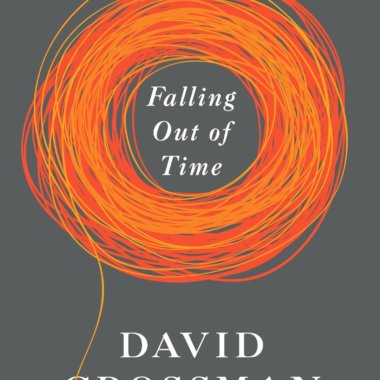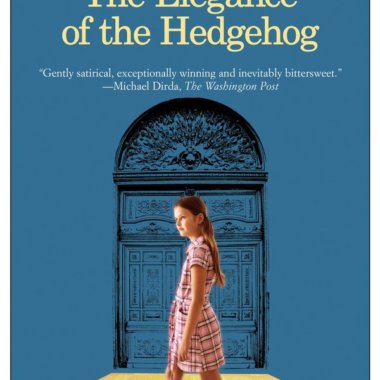“The magic power of a poem consists in it always being filled with duende.”
The narrative in Chris Pellizzarri’s novella, Last Night in Granada, moves along memory corridors that intersect and divert the logic of linear time. Like a prose poem that splices time and space, the narrator Chris invests these corridors with meaning, and, like time travel, they transport him from his apartment in Westmont, Illinois, to Granada, Spain, where the four-month study abroad program is revealed to him. Sponsored by the University of Illinois, he meets Vera there and falls in love.
Granada, the historic city with the Islamic past; Frederico García Lorca, the renowned Spanish poet, dramatist, and literary critic; El Duende, the dark force of Lorca’s poetry; and Vera, the Serbian woman born in Kosovo, not yet a United States citizen, comprise the four corridors of memories that crosscut the narrative in Last Night in Granada.
Consider that Chris travels these corridors as he reveals memories of his life nine years removed from the study abroad program; takes Ambien because he cannot sleep; suffers from anxiety, panic attacks, and claustrophobia so paralyzing that he can no longer fly. Only through revealed memories does he visit Granada, the city that stole his heart—“of all the cities, it was Granada.” At the age of thirty, with Spain trapped inside him, he wants to know if Granada will remember anything about him worth remembering; if he is just another lover that passed through; if any of the poems he wrote within its walls are worthy of her; if Granada knows he loved her “more than other Americans loved you.” While a student there, Chris does not want to travel too far from Granada. He will be buried alive in the city that he loves.
Chris and García Lorca intersect in Granada. While he is a student in the study abroad program, Chris lives with a host family across from the Huerta de San Vicente, the summer residence where the poet wrote his most brilliant work. While living in Westmont nine years later, Chris travels back to Granada along the García Lorca corridor and re-enacts three wide-angle shots of the poet’s execution in 1936 by the Nationalists loyal to the Fascist dictator Francisco Franco. The first re-enactment appears in the beginning of the novella and establishes the crosscutting that disrupts the linear time sequence in Last Night in Granada: “I will never see Spain again. I cannot fly because of the demon that leads the Fascist troops to the house where García Lorca is hiding.” The second re-enactment moves backward in time when Chris, staring at the Huerta de San Vicente, writes in his notebook this re-enactment: “At one in the morning, under a full moon as bright and fresh as Chicago snow, I see the shadows of men circling the house. I see one man write a letter and slip in under the front door. I see two men uproot rose bushes and cypress trees. I see three men smash a window and enter the house through broken glass, searching for incriminating documents or to find him in bed with a young boy.” The third scene re-enacts what happened just prior to his execution: “He is marched along the road over the Rio Darro, feral cats below in the valley at the river’s edge look up and observe the procession on the road. He sees the Alhambra tower, is it orange or red? The church bell rings in the Plaza Nueva, this is the last hour of my life, he tells himself.” He has one last view of the Alhambra “and the snow on top of the Sierra.” *
In his aesthetic essay, “The Theory and Play of the Duende,” García Lorca defines duende as “a force not a labour, a struggle not a thought.“ It is the antithesis of the Muse, having “neither map nor discipline.” It “burns with blood” and “shatters style.” It is an earth spirit from the underworld—a daemon—with a heightened awareness of death. The motif of el Duende in Last Night in Granada is visceral, as Chris travels the memory corridor of el Duende toward a heightened awareness of death and a passion that is the touchstone of García Lorca’s brilliance. In the narrative, Chris sees el Duende riding a horse before dawn through the countryside and showing up in “Westmont before the sun. He is not scared of the cold. He is the one Andalusian that the Chicago winter cannot kill.” When el Duende appears again to Chris, he sees “a rider on a horse leaving the house in the olive grove en route to Cordoba.” Is his el Duende the “black nag” Chris sites in Lorca’s poem, “Cordoba”? “Cordoba./Distant and alone./A black nag, the giant moon,/and olives in my sandbag.”
Halfway through the Last Night in Granada, Chris has internalized el Duende as a presence beyond symbol—“El Duende is coming. I hear the distant galloping of an approaching horse”— and García Lorcan in its intensity—masquerading “as dust and pale beams of sunlight . . . ready to rise with stomping Gypsy feet . . . ready to rise like smoke from the burning churches.” The duende is the fuel that turns Chris into a wolf howling “at the moon in a foreign land” and a gambler: “Somewhere in my sleep I made a deal with el Duende and I will have to pay for everything I have seen in my four months in Granada.”
Vera knows about el Duende because Chris introduces her to the poet’s work. On a bench in Federico García Lorca Park, on the bus, and in cafes, they share García Lorca like a lover’s passion. She reads passages from “The Theory and Play of the Duende” to Chris. He in turn reads to her one of his favorite García Lorca poems, “Baladilla de los Tres Rios.” She buys him a postcard of García Lorca, a memento of their days together. The poet and el Duende are present wherever Chris and Vera are: riding the bus to the coastal city of Malaga; hiking to the Alhambra, the Red Castle of Moorish history; watching flamenco dancers in the Gypsy caves in Sacromonte; walking the narrow, winding streets of Albaicin and remembering the Fascist massacre of the resistance fighters; strolling through the Generalife with its lush flowerbeds and fountains. When Chris looks out of his eighth-story window, he can see Vera jogging in the García Lorca Park below.
Just as he crosscuts the memory corridors of Granada, García Lorca, and El Duende, Chris splices the memories of his and Vera’s passionate weeks in Granada to reckon with the reality Vera’s present life: She is married to another man, and he is “married to anxiety and fear.” Vera can travel to Spain with her family, show them Granada, but Chris is trapped in Chicago, alone in his apartment. Memories of her do not free him. Although he might be consoled that her husband “will never know the girl from the plaza in Guejar Sierra, from the Alhambra’s Generalife, the girl who looked for flamingos in the Salinas, who walked with me through a garden in Ronda up to the gorge, the black iron gate and the gorge below,” the reality is that he is paralyzed in a self-imposed exile. Although her husband will never see the scrapbook of pressed flowers and leaves that Vera gave to Chris the last night they were together in Spain, her husband gave her a home and children. Chris tries to reach the scrapbooks under his bed, but he can’t move and considers swallowing a few more pills. Then he would be in Spain with her forever. El Duende is very near—too near.
***
Chris, as narrator, does not hew to a beginning, middle, and end in Last Night in Granada. He does not depend on time to make sense, or space to ground plot. He dispenses with timelines and itineraries, crosscutting memories of his four-month study abroad in Spain with his present life in Westmont, Illinois, where he suffers from anxiety, panic attacks, and claustrophobia, conditions that prevent him from returning to Granada. These memories, as alive in his apartment as they were in Granada, save him. If he cannot go to Granada, then he will bring Granada to him in Westmont. Although nine years have passed since he and Vera met and fell in love, time has not diminished the memories of her or Granada, or the passion for Frederico García Lorca and the dark struggle of el Duende.
As el Duende gallops across the countryside in Illinois, Chris travels to Granada re-enacting his life with Vera and Frederico García Lorca in wide-angle shots. He is willing to die if only he can be in that place one more time. El Duende has a hold on Chris, and Chris knows it. This is García Lorca’s gift to him, to transform the dark struggle into a work of art, willingly embraced.
**Mystery surrounds the burial place of García Lorca’s body. He is presumed to have been buried in a mass grave in Viznar, at the foot of the Sierra Nevada mountains.



2 comments
I doubt I’ll find and read ‘Last Night in Granada,’ though the title seems to have a very subtle double meaning, but I do know I want to know more about ‘el Duende.:’
Yes, the title “Last Night in Granada” has a double meaning: the last night Chris, the narrator, spent with Vera in Granada and the last night of Frederico Garcia Lorca’s life before he was executed. I hope you get to read the novella, but in the meantime pick up Garcia Lorca’s poetry and read his plays—”Blood Wedding” and “The House of Benarda Alba.” The force of the imagination that springs from the underworld drives el Duende in Garcia Lorca’s work.